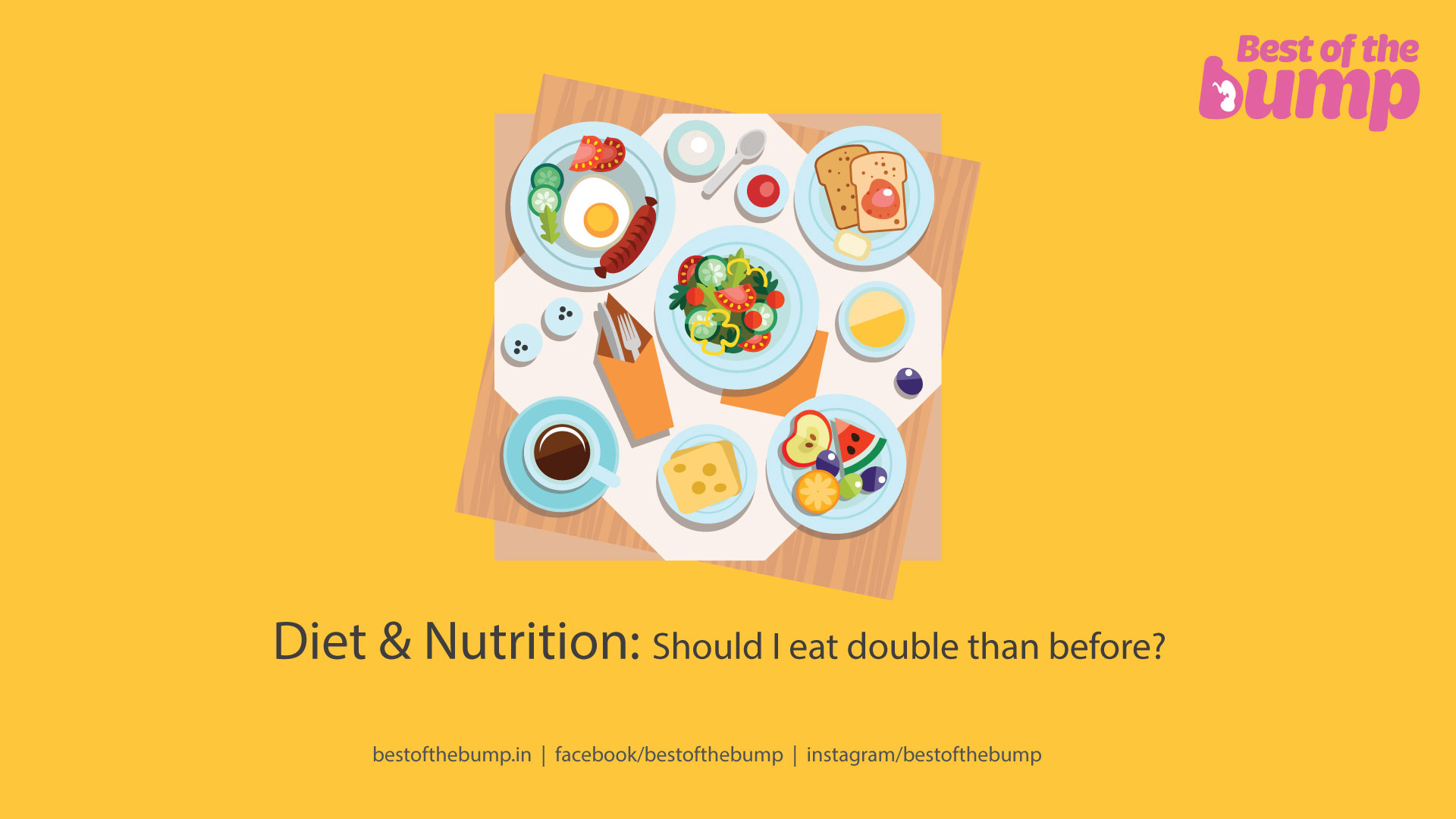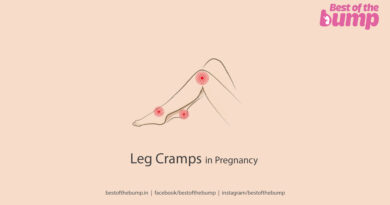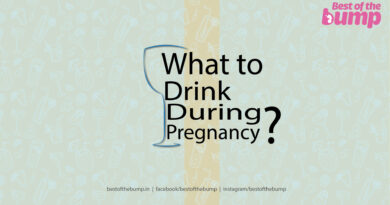Diet & Nutrition: Should I eat double than before?
Diet & Nutrition: Should I eat double than before? Pregnancy is a remarkable journey that brings about numerous changes in a woman’s body. One aspect that requires special attention during this time is diet and nutrition. Expectant mothers often wonder about the quantity and quality of food they should consume to support the health and development of their growing baby. In this article, we will explore the topic of pregnancy nutrition and address the question, “Should I eat double than before?”
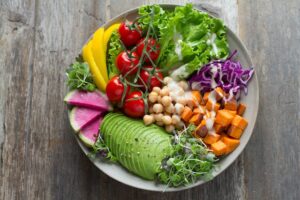
Know the Nutritional Needs During Pregnancy
Pregnancy is a crucial period where the mother’s body undergoes significant physiological changes to support the developing fetus. It is essential to provide the necessary nutrients to ensure the well-being of both the mother and the baby. Let’s delve into the key aspects of a healthy pregnancy diet.
Caloric Intake: Determining the Right Amount
The calorie requirements during pregnancy vary depending on factors such as height, body mass index (BMI), and daily activity levels. It is important to strike a balance between meeting the nutritional needs of the growing baby and maintaining a healthy weight for the mother.
During the first two trimesters, a daily intake of around 2,000 calories is generally sufficient. However, it is crucial to consult with a healthcare professional to assess individual requirements. In the last trimester, an additional 200 calories per day are recommended to support the baby’s growth.
Weight Gain: The Sign of a Healthy Pregnancy
Weight gain during pregnancy is a natural and expected occurrence. It is an indication that the mother’s body is adequately nourishing the developing fetus. However, it is important to monitor weight gain and ensure it falls within a healthy range.
Gaining weight steadily and gradually is preferable. The recommended weight gain during pregnancy depends on pre-pregnancy BMI. Underweight women may need to gain more weight, while overweight women may need to gain less. Healthcare providers can guide expectant mothers on their specific weight gain targets.
Establishing Regular Meal Patterns
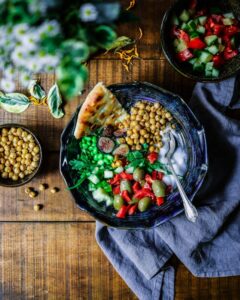
Maintaining regular meal patterns is important during pregnancy. Skipping meals can lead to low blood sugar levels, which can result in dizziness and fatigue. Having a balanced breakfast and incorporating healthy snacks throughout the day can help maintain steady energy levels.
Prioritizing Food Safety

Food safety is of utmost importance during pregnancy. It is crucial to avoid consuming raw or undercooked meats, seafood, and eggs, as they may pose a risk of foodborne illnesses. Additionally, practicing good hygiene and washing fruits and vegetables thoroughly before consumption is essential.
Essential Nutrients for a Healthy Pregnancy
A balanced diet that includes a variety of nutrient-rich foods is vital during pregnancy. Let’s explore the key nutrients that should be emphasized:
Protein
Adequate protein intake is essential for the growth and development of the baby’s tissues. Good sources of protein include lean meats, poultry, fish, eggs, legumes, nuts, and dairy products.
Folic Acid
Folic acid plays a crucial role in preventing neural tube defects in the baby. It is recommended to consume foods rich in folate, such as leafy green vegetables, citrus fruits, legumes, and fortified grains.
Iron
Iron is necessary to support the increased blood volume during pregnancy and prevent anemia. Iron-rich foods include lean red meat, poultry, fish, fortified cereals, spinach, and lentils. Iron absorption can be enhanced by consuming vitamin C-rich foods, such as citrus fruits and tomatoes.
Calcium
Calcium is essential for the development of the baby’s bones and teeth. Good sources of calcium include dairy products, fortified plant-based milk alternatives, tofu, almonds, and leafy green vegetables.
Omega-3 Fatty Acids
Omega-3 fatty acids, particularly DHA (docosahexaenoic acid), are important for the baby’s brain and eye development. They can be found in fatty fish like salmon, trout, and sardines. Pregnant women should choose fish with low mercury levels and limit their consumption to about two servings (approximately 340 grams) per week.
Vitamins and Minerals
Along with the specific nutrients mentioned above, a wide range of vitamins and minerals, such as vitamin D, vitamin A, and zinc, are crucial for both the mother’s and baby’s health. These nutrients can be obtained through a varied diet that includes fruits, vegetables, whole grains, and a variety of protein sources.
Making Healthy Food Choices
During pregnancy, it is important to make mindful food choices to ensure the safety and well-being of both the mother and the baby. Here are some key tips to keep in mind:
Food Safety
Avoid consuming raw or undercooked meats, seafood, and eggs, as they may contain harmful bacteria. Additionally, practice good hygiene and wash fruits and vegetables thoroughly before consumption.
Spicy and Irritant Foods
Some pregnant women may experience gastrointestinal discomfort or heartburn when consuming spicy or irritant foods like pepper, chili, or garlic. It is advisable to moderate the intake of such foods to prevent any discomfort.
Limiting Sugary Foods
While occasional indulgence is acceptable, it is important to limit the consumption of sugary foods and beverages. opt for healthier alternatives like fresh fruits or homemade snacks to satisfy cravings.
Regular Meal Patterns
Establishing regular meal patterns is important during pregnancy. Skipping meals can lead to low blood sugar levels and make expectant mothers more prone to dizziness and fatigue. It is crucial to have a balanced breakfast and eat healthy snacks throughout the day to maintain steady energy levels.
Diet and nutrition play a vital role in supporting a healthy pregnancy. While the popular notion of “eating double” during pregnancy is not entirely accurate, it is essential to increase calorie intake gradually and consume a well-balanced diet. Consulting with healthcare professionals and registered dietitians can provide personalized guidance on meeting specific nutritional needs during this special time. By prioritizing nutrient-rich foods, practicing food safety, and making mindful choices, expectant mothers can optimize their health and contribute to the healthy development of their little bundle of joy.
How much should I eat when I’m pregnant with twins and multiples?
Women carrying multiples should consume an extra 300 calories for each additional baby, according to the American College of Obstetricians and Gynecologists (ACOG). That means you’ll need to eat 600 extra calories per day on top of what you were having pre-pregnancy if you’re pregnant with twins (or 900 extra calories per day if you’re expecting triplets!).
Just like moms-to-be of singletons, moms-to-be of multiples should take a daily prenatal vitamin to support their babies’ growth and development. That said, since your needs for certain nutrients — especially iron, folate, calcium, magnesium, and zinc — are even higher when you’re carrying two or more, your practitioner may recommend taking additional supplements to fill in the gaps.
References
- WhatToExpect.com, 19 Best Foods to Eat During Pregnancy, May 2020.
- WhatToExpect.com, Foods to Avoid During Pregnancy, December 2020.
- American College of Obstetricians and Gynecologists, Nutrition During Pregnancy, March 2021.
- Cleveland Clinic, Expecting Twins or Triplets, December 2020.
- Centers for Disease Control and Prevention, Fruit and Vegetable Safety, May 2021.
- Brigham and Women’s Hospital, Meeting Your Nutritional Goals During a Twin Pregnancy, 2021.
- Mayo Clinic, Pregnancy Nutrition: Foods to Avoid During Pregnancy, April 2021.
- National Institutes of Health, Office of Dietary Supplements, Folate, March 2021.
- The Ottawa Hospital, Nutritional Guidelines for a Multiple Pregnancy, 2017.
- National Institutes of Health, National Library of Medicine, Optimal Nutrition for Improved Twin Pregnancy Outcome, November 2009.
